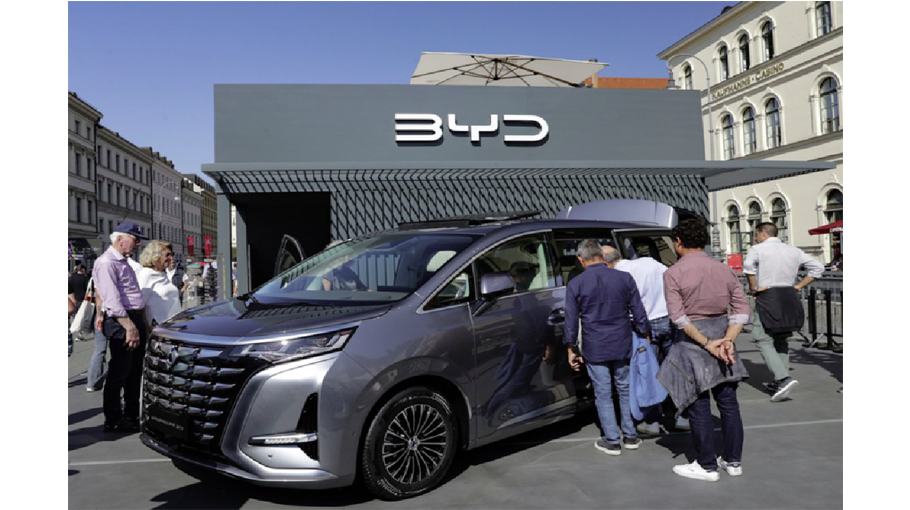Following the EU’s latest announcement to launch an anti-subsidy probe into Chinese electric vehicles (EVs), experts warned against the consequences of imposing any measures and deemed cooperation the best solution.
China believes that the investigation proposed by the EU is a practice of pure “protectionism,” said a spokesperson with China’s Ministry of Commerce, adding that the probe is, in essence, to protect the EU’s own industry in the name of “fair competition.”
Ferdinand Dudenhoeffer, director of the Germany-based CAR Center Automotive Research Duisburg, told Xinhua if measures should be taken against Chinese imports in Europe, it could be an absolute certainty that China will react.
“There is a very great risk … We need cooperation with China, not a trade war,” Dudenhoeffer said. “That would be a bad scenario for Germany, since Germany would lose a great deal.”
German carmakers like BMW, Volkswagen and Mercedes-Benz all consider China as one of their most important markets.
The announcement of the probe came at a time when some Europeans fear the competition from China might take away the market share from European suppliers, although China and the EU have a broad space for cooperation and share common interests and cooperative partnership in the automobile industry.
In recent years, notably since the beginning of 2023, China’s EV exports have witnessed a dramatic surge. According to Chinese customs data, in the first eight months of this year, a staggering 3.216 million EVs were exported, marking a year-on-year net increase of 1.313 million EVs.
The European Commission, for its part, reported that China’s vehicle imports had reached 530,000 in 2022 and 350,000 in the first half of 2023.
It is noteworthy that the electric vehicle industry in China enjoys a robust cooperative partnership with the European and global automotive industry networks, and the creation of each electric vehicle involves the collaborative efforts of tens of thousands of suppliers from around the world, according to China Chamber of Commerce to the EU (CCCEU).
The China-EU new energy automotive sector is progressively coalescing into an industry chain characterized by mutual interdependence, said He Weiwen, a senior researcher at the Center for China and Globalization.
China’s electric vehicle battery maker Contemporary Amperex Technology Co., Ltd.’s battery factory in Thuringia, Germany, launched earlier this year, boasts an annual battery output of 30 million units, with BMW as a prominent recipient.
“Cooperation on the production of quality and cheap electric cars between European and Chinese manufacturers would be the best solution,” said Kresimir Macan, a Croatian political and economic analyst.
“The market is large, everyone can benefit from it economically. Healthy competition and mutual cooperation will lead to cheaper cars. Otherwise, Europeans will not be able to buy these cars, so the whole electric car project will fail,” he added.
“Both China and the EU should fervently encourage mutual investments in each other’s companies, enhance the China-EU new energy vehicle industry and supply chains, and actively boost production and market expansion. This will ultimately lead to a mutually beneficial outcome for both parties,” said He Weiwen.
“Hasty interventions that impede electric vehicle trade and investment between China and the EU run counter to the interests of the European automobile industry and contravene the principles of free trade,” He said.


